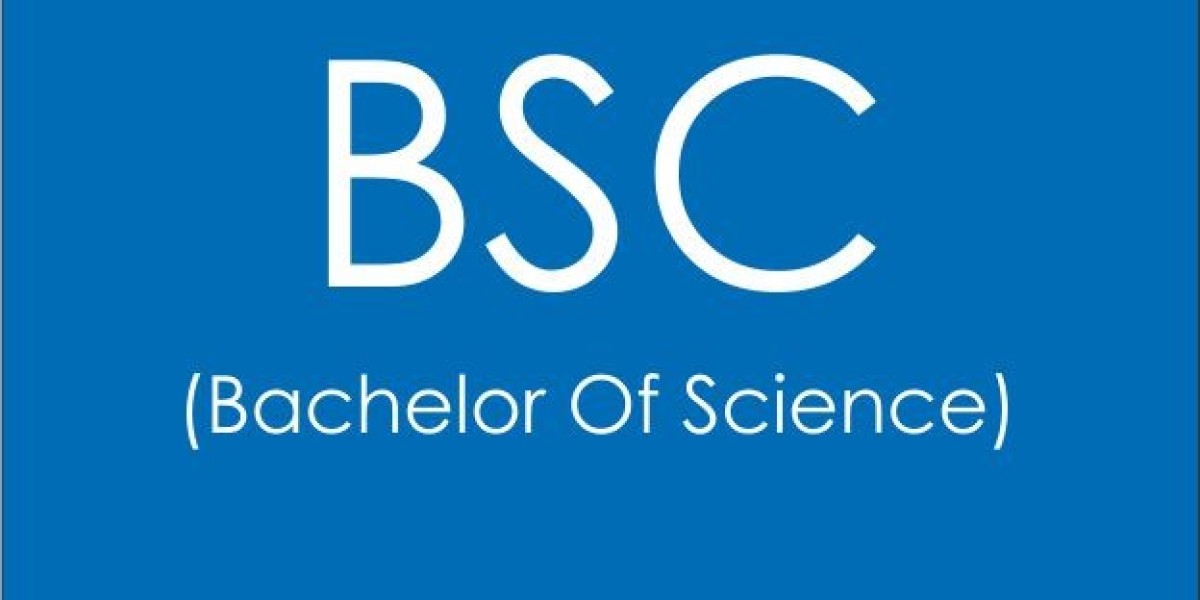Bachelor of Science (B.Sc.): A Student's Perspective
Choosing a Bachelor of Science (B.Sc.) is often seen as a solid step towards building a foundation in science and technology. As a student, I’ve found the program to be a blend of challenging coursework, hands-on learning, and opportunities to explore various scientific disciplines. Here's an overview of what life is like as a B.Sc. student, along with key aspects to consider.
Why Choose B.Sc.?
For many of us, a fascination with science begins early, driven by curiosity and a desire to understand how the world works. A B.Sc. program deepens this interest, offering specialized subjects like Physics, Chemistry, Biology, Mathematics, Computer Science, and Environmental Science. The program allows us to develop a strong theoretical base while gaining practical skills through lab work, projects, and field studies.
A B.Sc. also serves as a gateway to numerous career paths. Whether your goal is research, teaching, or working in industry, the program equips you with the knowledge and skills needed to pursue these opportunities. For those inclined towards higher studies, a B.Sc. is an excellent foundation for pursuing a master’s degree or professional courses.
What to Expect During the Course?
1. Core Subjects:
The curriculum usually involves a mix of core subjects and electives. As a student, you’ll focus on both fundamental and advanced topics. For example, if you major in Physics, expect to study classical mechanics, quantum mechanics, and thermodynamics, among others.
2. Practical Learning:
Lab sessions are integral to the program. These hands-on activities reinforce theoretical knowledge, helping students like me understand complex concepts. From experiments in chemistry labs to coding assignments in computer science, the practical aspect is as engaging as it is educational.
3. Interdisciplinary Approach:
Many universities now offer interdisciplinary courses, allowing students to combine subjects like Biology with Computer Science or Environmental Science with Physics. This flexibility broadens learning and opens up diverse career opportunities.
4. Research Opportunities:
If you’re interested in research, a B.Sc. can provide opportunities to work on small projects. Whether it’s studying plant genetics or developing algorithms, these experiences are invaluable for building skills and exploring your interests.
5. Workload and Exams:
Like any undergraduate program, a B.Sc. demands commitment. Balancing lectures, lab work, assignments, and exams can be challenging, but it’s manageable with proper time management.
Challenges of Pursuing a B.Sc.
While the program offers many benefits, it’s not without challenges. The workload can be intense, especially during exam seasons. Theoretical concepts can sometimes feel abstract, making it important to stay curious and persistent. Additionally, keeping up with technological advancements and staying updated in your field is essential for future opportunities.
Life Beyond the Classroom
Student life during a B.Sc. is not all about studies. Being part of clubs, participating in science fairs, and attending workshops provide a balanced experience. Many students also find internships during summer breaks, which offer exposure to real-world applications of their studies.
Career Prospects
Upon graduation, a B.Sc. opens up various paths. Some students opt for immediate employment in fields like IT, pharmaceuticals, or environmental consulting, while others pursue higher education. Teaching and research are popular choices for those passionate about academia.
FAQs
1. What subjects can I choose for a B.Sc.?
Subjects include Physics, Chemistry, Biology, Mathematics, Computer Science, Environmental Science, and more, depending on the college.
2. How long is a B.Sc. program?
Most programs are three years, though some institutions offer four-year versions with additional specializations.
3. Is math necessary for all B.Sc. courses?
No. Some courses, like Biology or Environmental Science, may not require advanced math, but it’s essential for subjects like Physics and Computer Science.
4. Can I switch fields after completing a B.Sc.?
Yes, a B.Sc. provides a versatile foundation, enabling students to transition into diverse fields, including management, law, or data science, with additional qualifications.
5. Are internships mandatory in a B.Sc. program?
Internships are not always mandatory but are highly recommended for gaining practical experience.
Conclusion
Pursuing a B.Sc. is an exciting journey for anyone passionate about science. It offers a unique combination of theoretical knowledge, practical experience, and opportunities for growth. While the path may be challenging, the skills and understanding you gain make it a worthwhile endeavor.










